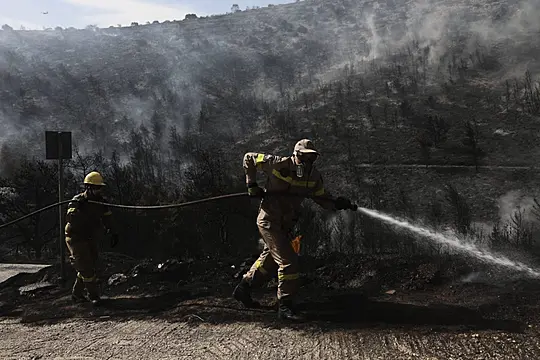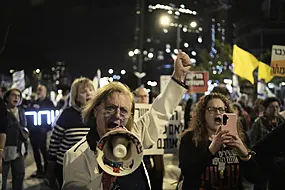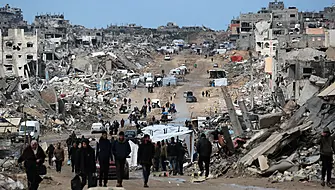Greek firefighters were battling a wildfire for a second day near two Athens suburbs on Sunday.
Local media reported some damage to houses as well as vehicles, with 65 fire engines and 283 firefighters still operating in the area.
Authorities said that while the blaze has died down, it is still burning.
No damage estimate is yet available but will be done once the fire is over, officials said.

On Saturday, Greek authorities ordered the evacuation of parts of the southern Athens suburbs of Voula and Glyfada as a precaution when strong winds fanned the flames and threatened residential areas.
Thick black smoke from the fire could be seen as far as Piraeus, about 12 miles (20km) away.
Officials defended the state’s response to the fire, saying it was prompt but was hampered by the mountainous terrain, high winds which occasionally reached gale force, and the fact that there were three separate fires breaking out almost simultaneously.

The fire started early on Saturday afternoon and, according to Deputy Climate Crisis and Civil Protection Minister Evangelos Tournas, the first fire engines were on the scene 12 minutes after the alarm was sounded.
Eight minutes later, firefighting planes and helicopters, 17 in total, took off to join the efforts.
“Despite the great collective effort, there was limited damage to some homes … but we avoided injuries or loss of life,” Mr Tournas said, adding that there were 61 fires across Greece on Saturday.
Hot and dry weather, combined with frequent high winds, make Greece especially vulnerable to wildfires during the summer.
Last August, wildfires devastated the northern half of the island of Evia, Greece’s second largest.

These and other major fires stretched the country’s firefighting capability to the limit and required aid from 24 European and Middle Eastern countries, which sent planes, helicopters, vehicles and hundreds of firefighters.
On Thursday, the European Commission said that more than 200 firefighters and technical equipment provided by European Union countries will be soon deployed to Greece to allow for a swift response to large wildfires.
“We are still in the beginning of summer and our aim is to moderate the harsh consequences of those new phenomena caused by the climate crisis,” said Climate Crisis and Civil Protection Minister Christos Stylianides.
“Summer will be tough… weather forecasts show that, in the eastern Mediterranean region, a climate crisis hot spot, things will, unfortunately, not be easy.”







